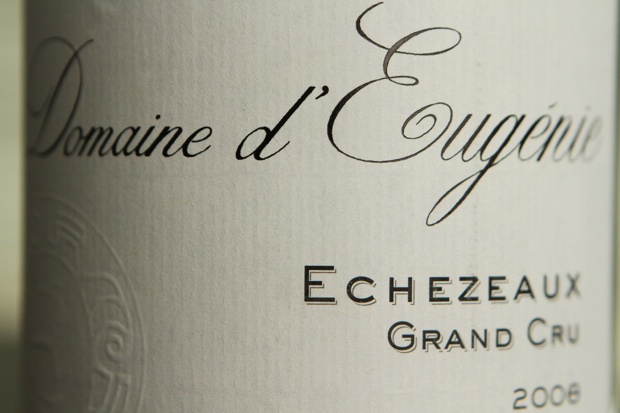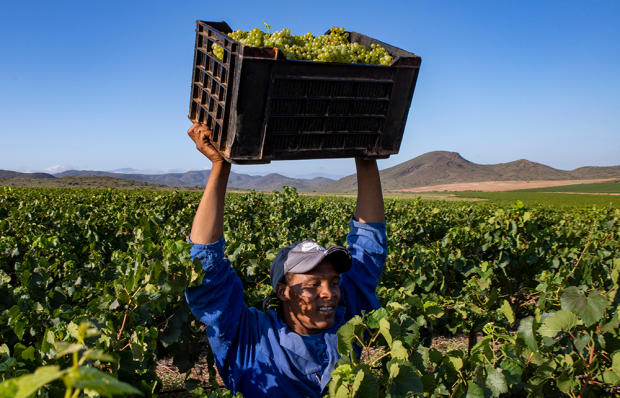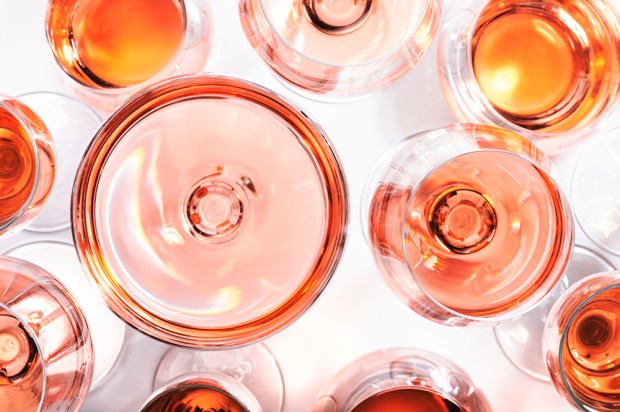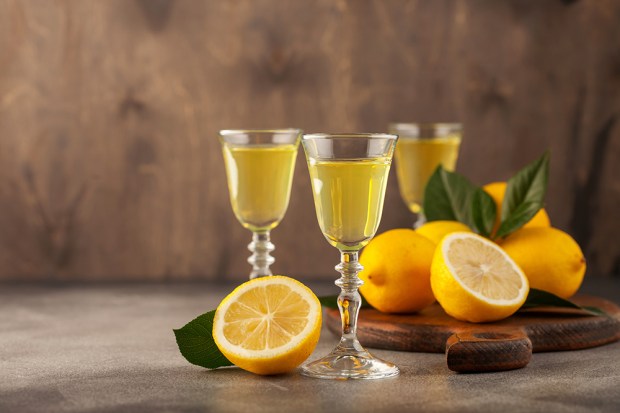René Engel must have been a wonderful man. He studied wine-making before fighting in the trenches during the first world war, and spending some time in German captivity. He then went home to run — and improve — the family domaine in Vosne-Romanée. In those days, most Burgundian growers still thought of themselves as farmers who made wine. Few aspired to the glamour enjoyed by their counterparts in Bordeaux. Their viniculture was instinctive, traditional — and sometimes improvised.
Pinot Noir is not an easy grape. Left to itself, especially if there is a poor summer, it can produce a thin liquid. So the Burgundians occasionally helped it along. Those wonderful blackberry-coloured Burgundies bottled by Avery’s and beloved by Bron Waugh: it is unlikely that they were all pure Pinot. Then came the EU. We Brits fondly — sometimes self-pityingly — believe that the UK is the only country which enforces EU law. The truth is more complex. On wine-making, even the Burgundians conformed.
They were able to do so, and make superb Pinot Noirs, because vinification techniques had improved. René Engel deserves a lot of credit for that. While he was making wine, he was also thinking about the craft, to the extent that he was invited to become the professor of oenology at Dijon University. He helped to ensure that Burgundy was not only able to meet the challenges imposed by the EU. It could raise its game while doing so. The old man lived to be 92. Notionally retired for some years, he went on interfering to the end. In five vineyards, whose total size was only 15 acres, the Engel wines got better and better. I have recently tasted a number of them.
First came a 2000 Clos de Vougeot grand cru, quickly followed by a 1999 Grands Echezeaux. They both had the farmyard nose characteristic of fine Burgundy, as well as subtlety, fruit and perfume. It was as if they combined the gnarled agricultural strength of the Burgundian countryside with the refinement of Ducal Burgundy: a peasant with a shovelful of dung, and a beautiful girl at the Court of Jean sans Peur. They lasted forever on the palate, and will last for years in the bottle. Indeed, I thought that the Grands Echezeaux, although superb, was not yet at its peak. It won the golden apple, but not by much.
Cassidy Dart of Pol Roger then organised a lunch. As we were to worship at the shrine of Burgundian Pinot Noir, he thought that we should start with the grape in another incarnation. The Pol Roger 2004, 60 per cent Pinot Noir, has only just been released after spending nine years lying on its lees. A joyous wine, it danced from the glass to the palate: tasting it was like drinking a fanfare of trumpets. Then on to Burgundy, and sadness. Old René had a grandson, Philippe, a joyous fellow, who lived life to a fanfare of trumpets. Alas, we can only hope that he is now eating foie gras to the same accompaniment. He died aged only 49, and there was no one in the family to take over. Domaine René Engel did not produce an ’05, which is maddening. That would have been a significant contribution to a great vintage.
The Domaine was sold to François Pinault, who owns Château Latour, for €25 million. Many -Burgundians thought that was a silly price. It now looks like a bargain. M. Pinault renamed the property Domaine D’Eugenie, and we drank his ’06 Clos de Vougeot and the Engel ’02. The Engel was in the great tradition. The Eugenie was promising but more international in flavour, with less terroir. With respect to my colleague Simon Hoggart, it is impossible to discuss Burgundy without using that word. The English translation is simple: genius loci.
As the Engel terroir may have been lost, we should all take every opportunity to drink the wines, but they tend to be priced as one would expect, from a splendid rarity.
Got something to add? Join the discussion and comment below.
Get 10 issues for just $10
Subscribe to The Spectator Australia today for the next 10 magazine issues, plus full online access, for just $10.
You might disagree with half of it, but you’ll enjoy reading all of it. Try your first month for free, then just $2 a week for the remainder of your first year.















Comments
Don't miss out
Join the conversation with other Spectator Australia readers. Subscribe to leave a comment.
SUBSCRIBEAlready a subscriber? Log in